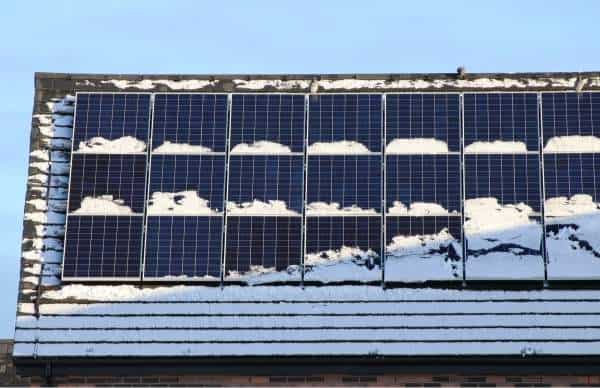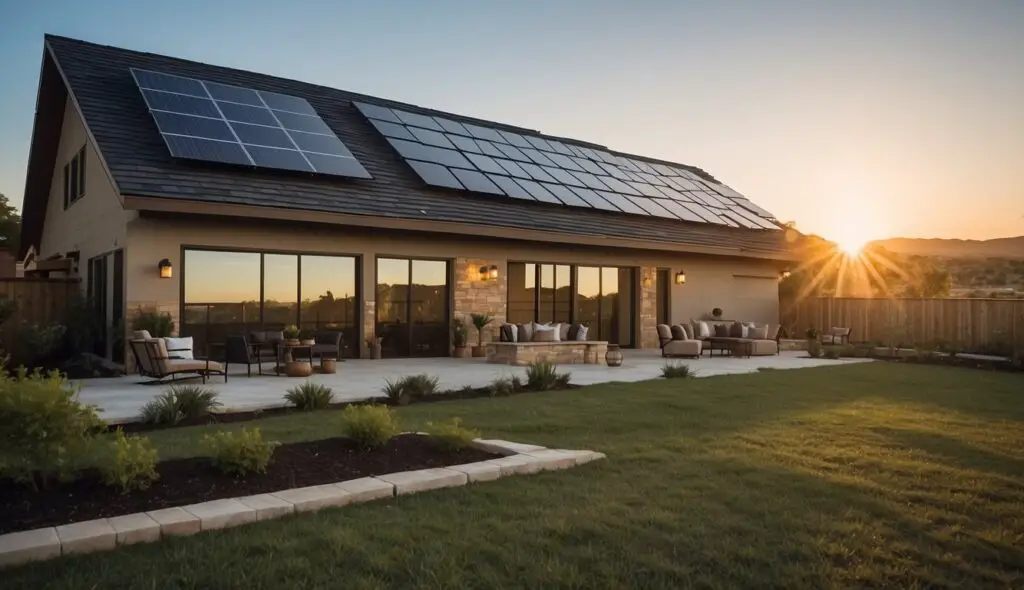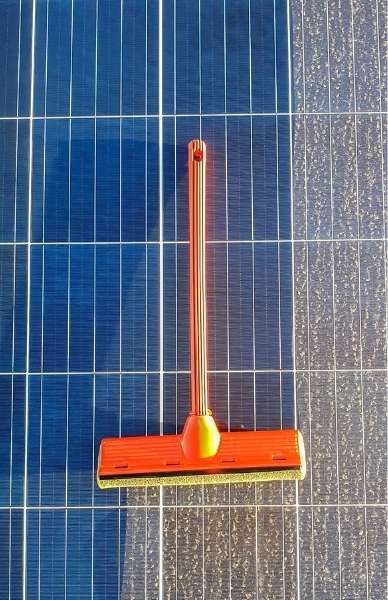
How long do solar panels last and what factors affect their lifespan? In this article, we will explore the longevity of solar panels, including degradation rates, maintenance tips, and which panels have the longest lifespan.
On average, solar panels have a lifespan of over 25 years, depending on weather conditions, preventative maintenance, and brand.
Discover why investing in reliable equipment and installers is crucial, as well as when to consider replacing your solar panels. Find out how to make your panels last longer and why regular maintenance is key to ensuring their efficiency over time.
Key Takeaways:
- Choose a reputable installer and high-quality equipment for longer solar panel lifespan.
- Solar panels have a lifespan of over 25 years, with a gradual degradation rate of 0.5-1% per year.
- Factors such as weather, maintenance, and panel type can affect the longevity of solar panels.
Table of Contents
What Is Solar Panel Degradation Rate?
Solar panel degradation rate refers to the gradual decline in a panel’s energy production capability over time, influenced by various factors such as environmental conditions and manufacturing quality.
One of the key contributors to solar panel degradation is the specific climate in which the panels are installed.
For instance, many solar panels in hot and humid climates may experience faster degradation compared to those in cooler regions. This is due to the increased stress that extreme temperatures and high humidity levels place on the materials and components of the solar panels.
The warranty coverage provided by the solar panel manufacturer can also significantly impact the degradation rate. A comprehensive warranty that covers potential issues related to yearly degradation rate can offer assurance to consumers regarding the long-term performance of their solar panels.
Along with climate and warranty coverage, regular maintenance of solar panels plays an important role in minimizing degradation rates.
Proper cleaning, monitoring for potential issues, and timely repairs can help extend the lifespan and efficiency of solar panels, ultimately reducing the rate at which their energy production capacity declines.

What affects a solar panel’s lifespan?
The lifespan of a solar panel can be influenced by various factors, including the initial capacity, quality of solar installation, efficiency of the panel, and adherence to the manufacturer’s warranty guidelines.
Regarding maintaining a solar panel, regular inspections and cleaning are crucial to optimize performance and extend its life span. Accumulation of dirt, debris, or shading can significantly impact the panel’s efficiency over time.
Efficient energy output plays a vital role in determining how long a solar panel can function at its peak. Improvements in solar cell technology, such as better power conversion rates and durability of materials, can enhance the longevity of the panels.
Which Solar Panels Last Longest?
High-quality solar panels from reputable manufacturers, known as tier one or tier one solar panels, often have longer lifespans due to their superior construction, durability, and performance warranties.
These panels are designed to withstand the test of time, offering exceptional performance for decades to come.
Tier one panels typically come with power output guarantees that ensure consistent energy production levels over the years, providing peace of mind to consumers.
Their robust build makes them highly resistant to harsh environmental conditions, such as high winds and extreme temperatures, ensuring reliable energy generation even in challenging situations.
Factors That Affect Solar Panel Life Expectancy
Several factors impact the life expectancy of solar panels, including installation quality, system maintenance, environmental conditions, and adherence to manufacturer guidelines.
One aspect that significantly influences the durability of solar panels is the quality of their installation.
Proper installation not only ensures optimal performance but also plays a vital role in preventing avoidable issues down the line.
Environmental conditions also play a major role in determining how long solar panels can last. Factors such as temperature fluctuations, humidity levels, and exposure to harsh elements can impact their efficiency and longevity.
Tips to Make Your Home Solar Panels Last Longer
Enhancing the longevity of home solar panels can be achieved through regular maintenance, monitoring energy efficiency, and investing in quality solar equipment and technology.
Regular cleaning of solar panels to remove dust, dirt, and debris is essential to ensure optimal energy production.
Inspecting the panels for any signs of damage or wear regularly can help in identifying issues early on, preventing further damage.
Optimizing energy usage within the household by implementing energy-efficient appliances and practices can further enhance the performance and longevity of the solar panels.
Which Solar Panels Have the Longest Life Span?
Solar panels with industry standard-leading performance guarantees, durable construction, and minimal degradation rates are likely to have the longest lifespan among available options.
When considering the longevity of solar panels, it is crucial to evaluate the durability of the materials used in their construction. High-quality panels are often made with robust components that can withstand harsh and extreme weather, conditions and physical impacts, ensuring their longevity over time.
The efficiency ratings of solar panels play a significant role in determining their lifespan. Panels with high efficiency not only generate more energy but also tend to have a longer operational life due to their superior performance.
Degradation rates are another crucial factor to consider when choosing panels for optimal longevity. Panels that exhibit minimal or average degradation rate over time are likely to maintain their efficiency and output levels for an extended period.

Do Solar Panels Degrade Over Time?
Solar panels experience degradation over time, resulting in a gradual decline in their energy production efficiency, which is typically covered by production warranties offered by solar panel manufacturers.
What happens to solar panels after 25 years?
After 25 years, solar panels may exhibit increased degradation, reduced energy output, and potential end-of-life considerations that warrant replacements or upgrades to maintain system efficiency.
As solar panels age past the 25-year mark, their performance can be significantly impacted. Gradual degradation can lead to decreased energy production, affecting the overall efficiency of the system.
Components such as the photovoltaic cells and protective coatings may wear out over time, impacting the panel’s ability to convert sunlight into electricity.
It becomes important to conduct regular assessments to monitor the condition of the panels and determine if they still operate within acceptable parameters.
Invest in Reliable Solar Equipment and Installers
Investing in reliable solar equipment and professional installers is a critical step in ensuring the long-term performance and durability of your solar energy system.
Quality solar products from reputable manufacturers are engineered to withstand various environmental conditions and offer optimal energy output.
Trusted solar providers often offer warranties and support, giving you peace of mind knowing that your investment is protected. Advancements in solar technology have led to more efficient and durable panels, increasing the overall reliability and longevity of your system.
Keep Your Panels Clean

Regular cleaning and maintenance of solar panels are essential practices to optimize energy production and extend the lifespan of your solar power system.
To maximize efficiency, make sure that your solar panels are free from:
- dirt
- dust
- bird droppings
- other debris
A well-maintained solar system is more likely to last for decades, providing you with sustainable energy and cost savings over the long term.
Scheduled inspections and cleaning routines can significantly impact the overall output and efficiency of your solar array.
When Should I Plan to Replace Solar Panels?
Determining the ideal time to replace solar panels involves assessing their degradation rate, warranty coverage, maintenance history, and overall energy production efficiency.
One factor to consider in replacement decisions is the warranty terms provided by the manufacturer. Manufacturer warranties play a significant role in safeguarding your investment and ensuring the long-term performance of your solar panel system.
Understanding the warranty coverage details, including guarantees on product durability and efficiency, can help in determining when it’s time to upgrade.
Can you make your solar panels last longer?
Extending the lifespan of solar panels is possible through diligent maintenance, quality installations, and adherence to manufacturer guidelines, promoting sustained energy production and system longevity.
One key aspect of solar panel longevity is regular cleaning to prevent the buildup of dirt and debris, which can hinder sunlight absorption and reduce efficiency.
Employing experts for installations ensures panels are correctly placed and connected, optimizing their performance.
Following manufacturer recommendations regarding maintenance schedules and inspections can help detect issues early and prevent costly repairs down the line.
Regular Maintenance and Servicing
Regular maintenance and servicing of solar panels are essential to uphold system efficiency, prevent breakdowns, and prolong the operational life of solar energy installations.
By implementing a routine maintenance schedule for your solar panels, you can ensure that they continue to function optimally over time. Regular servicing helps in identifying and addressing any issues before they escalate into more significant problems, ultimately saving you from costly repairs.
Consistent upkeep of solar inverters plays a crucial role in maximizing energy savings by ensuring that your solar system operates at peak performance levels. This not only benefits your wallet but also contributes to a sustainable environment by harnessing clean and renewable energy efficiently.
Why do solar panels degrade?
Solar panel degradation occurs due to a combination of environmental factors, such as UV exposure, temperature fluctuations, moisture ingress, and physical wear, which gradually impact their performance and longevity.
This degradation is a natural process that can be further exacerbated by material vulnerabilities in the panels themselves, making them susceptible to delamination, corrosion, and electrical disruptions.
Along with these internal issues, external influences like bird droppings, dust accumulation, and shading from nearby structures can also hinder optimal energy production.
Frequently Asked Questions
How long do solar panels last?
Solar panels typically have a lifespan of 25-30 years.
Do solar panels lose efficiency over time?
Solar panels do lose efficiency over time, but most manufacturers say it is a gradual process and they can still produce energy for many years after their initial installation.
What happens to solar panels at the end of their lifespan?
When solar panels reach the end of their lifespan, they can be recycled to recover valuable materials and reduce waste.

